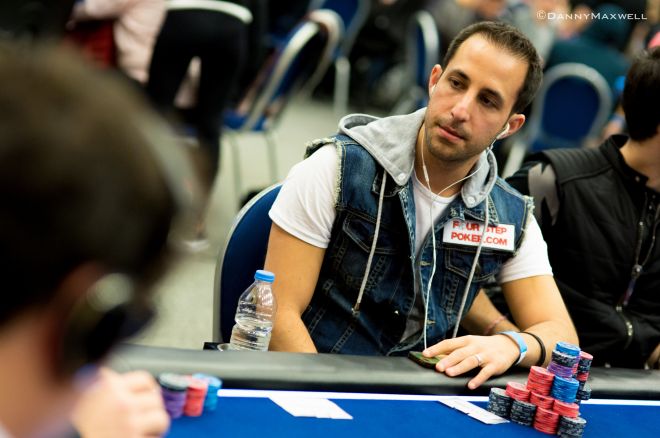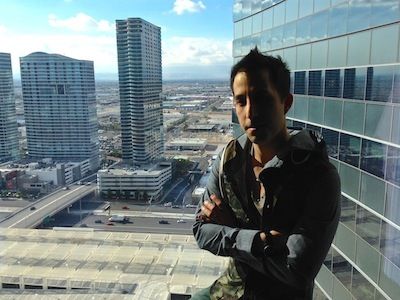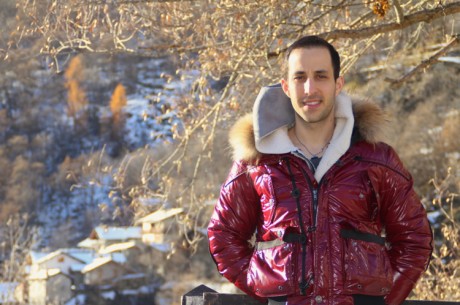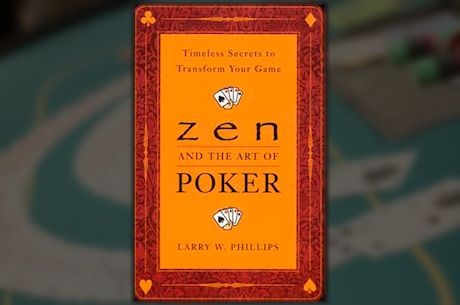Alec Torelli: My One Piece of Advice

Alec Torelli is a poker professional originally from California, but travels the world full time with his wife, Ambra. Torelli has over $1.5 million in live tournament earnings (including two World Series of Poker final tables and two World Poker Tour final tables) as well as over $500,000 in online tournament earnings. Outside of poker he and his wife manage a million-dollar online business which travels the world with them.
Today Torelli shares some thoughts from his experiences playing and coaching others, including advice to those wanting to improve their games but finding it difficult to do so.
Over the past few years I��ve been very fortunate to coach and train many aspiring poker professionals, including players just like you. They come from all walks of life �� from Poland to Sicily, from Los Angeles to New York. They include the 18-year-old who��s debating between college and poker, to the 40-year-old with two kids who just wants to make a little extra on the side.
They have questions about the game, including about strategy and about the life of a professional. But deep down, they all want to know one thing: can I really make it?
My answer is always the same: yes.
Some miss the big picture, and instead ask trivial questions: ��What do I do with this hand here?�� or ��How much do you lose before quitting?��
I pry, and shift the conversation. ��How to play a specific hand�� is really a discussion about their overall thought process toward poker, and ��the right amount to lose�� leads to us breaking down their bankroll, comfort level, and triggers for emotional pain.
It��s no surprise, then, that ��Can I really make it?�� really means ��Am I adequate and competent enough to succeed?��
Poker is just the plot through which the story is told.
Most already know better than to expect a magic pill to succeed �� that it takes hard work, discipline, and perseverance. But knowing that and knowing how to act upon that knowledge are very different things.
Teaching challenges me to think of problems in a different way. One cannot simply state the obvious and expect others to change their behavior. To be a good coach means to empower others to be better, giving them self-confidence to tackle obstacles and tools to make themselves winners �� to bring out the hidden talent they didn��t even know they had.
While all the advice I give is personal to each client, some things are universal. If there��s one underlying message that I tell everyone, it��s always to think big.
Too often do people settle, sticking with what seems ��realistic�� and not aiming higher or accepting greater challenges. The problem is that as soon as they are met with obstacles, they give up. Their goal isn��t worth the sacrifice it takes to achieve it.
The part that kills me is they come so far, only to turn back when success is right around the corner.
��Eighty percent of success is showing up,�� Woody Allen once famously stated. It��s sad, but he��s right. The truth is that it takes 80% of the effort to accomplish something mediocre as it does to accomplish something great. That 80% makes you a winning poker player, but the last 20% is where all the money is. The same 80/20 principle is true almost everywhere. In truth, it��s more like 90/10.
The saddest part? The additional work is especially easy, once you know what to do and then systematize it (another aspect on which we focus an immense amount of energy). In my experience, aspiring poker players tend to over-complicate the process and what they actually need to do to succeed.

I assure you that the average high stakes pro doesn��t spend even an hour a day truly studying poker, crunching numbers and ranges. The ones who do are crushing the games, banking on the universal fact that everyone enjoys playing more than working. Many will be content with simply playing poker, and consider that their work (tantamount to an athlete showing up on game day). But when it comes to putting in the sweat, very few are simply willing to do it.
When was the last time you crunched numbers on PokerStove? Yet how often do you complain about your bad luck, or that losing streak? Pros, by and large, are no different.
So here��s the secret potion. If you want to succeed, you need to work hard. You need to make sacrifices. You need to persevere. And that starts with taking responsibility for the things that have gotten in the way.
You haven��t played as much poker as you like? Well, that��s your fault. It��s not your kid��s and it��s not your job��s �� both of those you choose to have, remember?
Taking full responsibility for 100% of your life is scary and most people can��t handle it. It means they��re responsible for their life situation. It��s also empowering. Instead of complaining and blaming, you can change the things you don��t like and take action.
It��s a trait all winning poker players have. They focus on what they can control and view every hand as an opportunity. They never say ��I got unlucky��; they ask ��What could I have done differently?��
And it��s the fundamental difference between a winner and a loser.
If this at all sounds repetitive and trivial, then it gives the platitudes even more credence. It��s why I don��t mind saying it for free; very few will take the advice. Again, even the average pro doesn��t crunch numbers.
If you want more personalized attention on your journey, what you could do is hire me as a coach. But the truth is you really don��t need me. Not unless you��re spending that hour on your own, and still coming up short. And if the one who stands to gain the most is telling you have everything you need to be whoever and whatever you want right now, then take my word for it.
This article took me an hour, which is the same $500 that you��d pay me personally to tell you exactly what I told you here.
So bank the money, and go buy yourself that gym pass, that poker software, that plane ticket or whatever else you��ve been putting off until tomorrow, and start doing it.
Right now.
Because if we��re being honest, we both know that tomorrow is never.
~Alec
P.S. And when you do, please get in touch, and tell me all about it.
Torelli is currently in Malta where he made the money in the EPT11 Malta Main Event before busting just a short while ago near the end of Day 3. Sarah Grant caught up with him earlier in the week to talk about the importance of being patient when the cards aren��t cooperating, as well as about other current ventures. Take a look:
Follow Alec Torelli on Twitter, through Facebook, or via his popular blog.
Get all the latest PokerNews updates on your social media outlets. Follow us on Twitter and find us on both Facebook and Google+!








